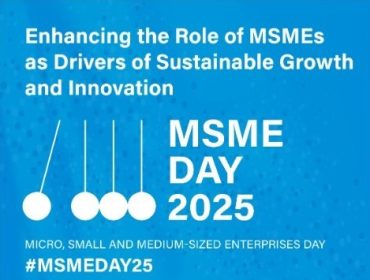
SMEs turning to alternative financing instruments as growth slows in bank lending
April 15th, 2019 – Small and medium-sized enterprises (SMEs) are turning to non-bank financing sources at a faster pace than in the past, as bank lending to them has risen less than expected given today’s favourable credit conditions and business environment.
Financing SMEs and Entrepreneurs 2019: An OECD Scoreboard finds that online peer-to-peer lending and equity crowdfunding increased significantly in 2017, especially in countries with small markets. China, the United Kingdom and the United States continued to have the biggest online alternative finance markets for businesses. Venture capital investments were up in most countries, and the number of SME listings expanded by more than 13% in 2017, with total SME market capitalisation up 16.7%.
SMEs and entrepreneurs constitute the backbone of OECD economies, accounting for 60% of total employment and 50-60% of value added. They are key to strengthening productivity, delivering inclusive growth and helping economies adapt to changes like the digital transition, ageing populations and the changing future of work. This eighth annual edition of the OECD’s SME financing Scoreboard provides data on debt, equity, asset-based finance and financing conditions in 46 countries and an overview of policy measures to ease SMEs’ access to finance.
The 2019 Scoreboard finds that asset-based financing also grew, with leasing and hire purchase activities up by a median rate of 6.2%.
SME loans grew at a median of close to 5% in a majority of middle income countries in 2017, while SME lending stagnated in the United States and the United Kingdom, and fell in European countries most affected by the financial crisis over the same period.
Credit conditions and interest rates remained favourable. The median value of the average interest rate charged to SMEs fell for the 7th year in a row, and SME bankruptcies dropped for the fourth consecutive year in 2017. On the other hand, some segments of SMEs continued to face difficulties in accessing finance. This is the case in particular for micro-enterprises, innovative ventures, start-ups and young firms.
Countries continued to do more to foster SME access to bank and alternative sources of finance by adapting regulations and introducing targeted policies to support Fintech. Credit guarantees, the most widespread instrument to ease SMEs’ access to finance, have been expanded in scale and volume, and better targeted to specific firms. The OECD is working to further expand the evidence base on SME access to finance and support governments in improving their policies in this area.
Written by The European Sting – https://europeansting.com/2019/04/15/smes-turning-to-alternative-financing-instruments-as-growth-slows-in-bank-lending/
Photo: PMI.it
Related Post
MSMEs Day 2025: Enhancing the role...
MSME Day 2025 comes at a pivotal moment—just ahead of the Fourth International Conference on Financing for Development (FfD4) in Sevilla...
SME Performance Review: the Annual Report...
Despite ongoing economic headwinds and geopolitical uncertainties, Europe’s 26.1 million SMEs continue to demonstrate remarkable resilienc...
How small businesses can navigate global...
Micro, small, and medium-sized enterprises represent the vast majority of businesses worldwide and are vital to global employment, yet they ...




